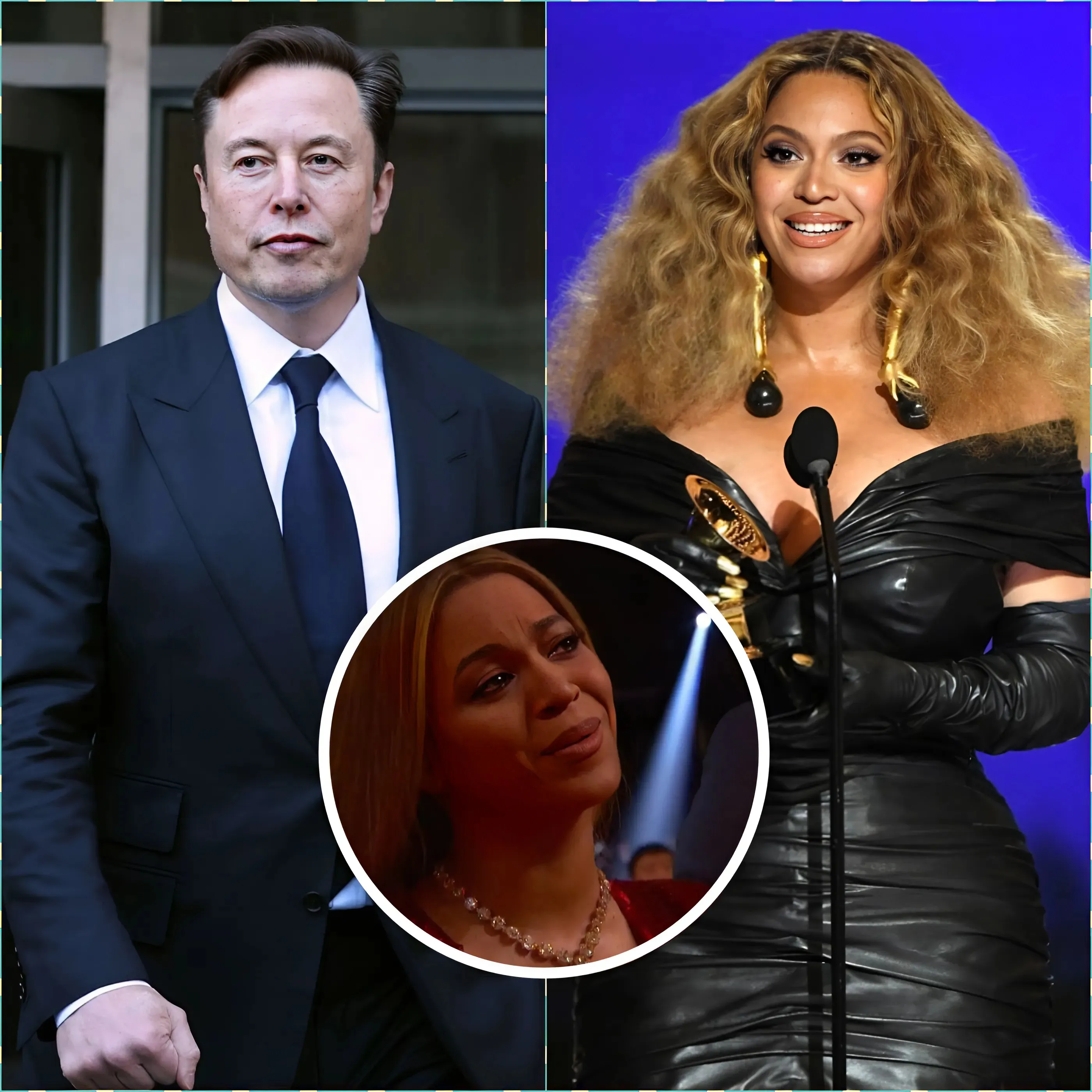Elon Musk recently made headlines with a bombshell statement that shook the music industry. After a long period of silence, the tech mogul and owner of Twitter, SpaceX, and Tesla decided to speak out, but not in the way that most expected. In a brief but powerful statement, Musk used just eight words to address a topic that left fans and pundits alike stunned: he announced that Beyoncé would be removed from the Grammy nominations. The move immediately sparked a wave of reactions on social media, as well as speculation about the reasons behind the unexpected move.

As soon as the statement was posted on Twitter, it set online discussions ablaze. The message, which consisted of just eight words: “Beyoncé is no longer a Grammy nominee,” was shared thousands of times. Reactions ranged from confusion to outrage, with many Twitter users expressing their shock at such a drastic decision. Fans of the global superstar immediately denounced what they considered an injustice, pointing out that Beyoncé, with her impressive career and many successes, more than deserved her place among the Grammy contenders.

The Grammy Awards, one of the most prestigious awards ceremonies in the music industry, are known for their nominations that are often the subject of controversy and debate. But this year, the exclusion of Beyoncé, an undisputed figure in modern music, added a new element of surprise and perplexity to the situation. Musk’s decision also attracted the attention of the world’s media, which rushed to analyze the implications of this unexpected action.

For many, this announcement seems to have roots in Elon Musk’s long, complicated relationship with the music industry. Musk, while primarily an entrepreneur and engineer, has repeatedly shown his influence in the entertainment world, whether through his collaborations with artists, his role in the social media era, or his media controversies. It’s not uncommon for Musk to make headlines for reasons other than his tech ventures.

This isn’t the first time Elon Musk has stirred up public debate with statements that seem to defy traditional expectations. In the past, he has attracted attention for provocative comments on topics ranging from politics to space. However, Musk’s intervention in the music sphere, and more specifically in the Grammy nominations, has been seen as an intrusion into an area where he has not previously held much clout. He has not explained the reasons behind his decision, however, which has further fueled speculation.
The Grammy Awards are known for recognizing the artists who have defined the year, and Beyoncé, with her stellar career and multiple successful albums, is a fixture in the music world. In 2023, she won several awards, including Album of the Year, a rare accomplishment that cemented her status as a musical icon. Her influence transcends musical genres, and her fans, known as the “Beyhive,” are among the most passionate in the music world.
However, Musk’s decision could be explained by personal or professional factors. Some observers suggest that there could be a link between his withdrawal from Beyoncé and his controversial political positions, particularly on social media. Elon Musk has often used Twitter to express his personal opinions, and these opinions have sometimes offended public figures. It is possible that Musk, with his personal vision of society and culture, wanted to send a strong message to the music industry, although it is still difficult to understand exactly what he was trying to accomplish with this decision.
The Grammy Awards, which have been criticized in the past for their lack of diversity and inclusivity, are once again in the spotlight. The exclusion of an artist as renowned as Beyoncé raises questions about whether the awards are still able to represent the diversity of musical tastes and talent in the industry. Some suggest that nomination decisions could be influenced by outside forces, such as big tech companies or entertainment industry figures, who could exert pressure on the process.
Another hypothesis is that Musk’s statement could be an attempt to question the elevation of popular musical figures at the expense of new talents or other less commercial musical genres. It is also possible that he wanted to intervene in the dynamics of the music industry, which is often perceived as being dominated by already established artists supported by major labels.
As the situation continues to unfold, Beyoncé fans are waiting for an explanation, hoping that the artist herself will speak out on the incident. Music industry insiders, meanwhile, continue to debate the impact this decision will have on future Grammy nominations. Whatever the reason for Musk’s action, it has already opened a rift in the world of music awards and raised important questions about the influence of outside figures in the artist selection process.
In any case, Elon Musk’s move seems to be yet another sign that the lines between technology, music, and popular culture are increasingly blurred, and that figures like Musk can shape cultural discussions in ways that are as spectacular as they are unexpected. It remains to be seen how this will affect future developments in the music industry, and whether there will be consequences for the relationship between big tech companies and the music industry.
The only certainty is that the impact of these eight words on Grammy nominations will resonate long into modern music history.





